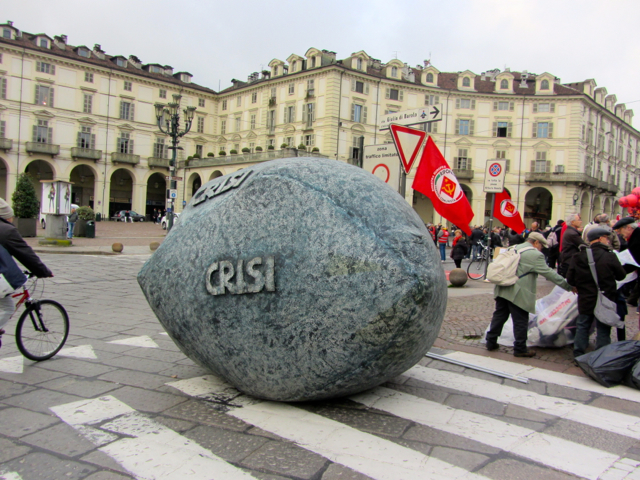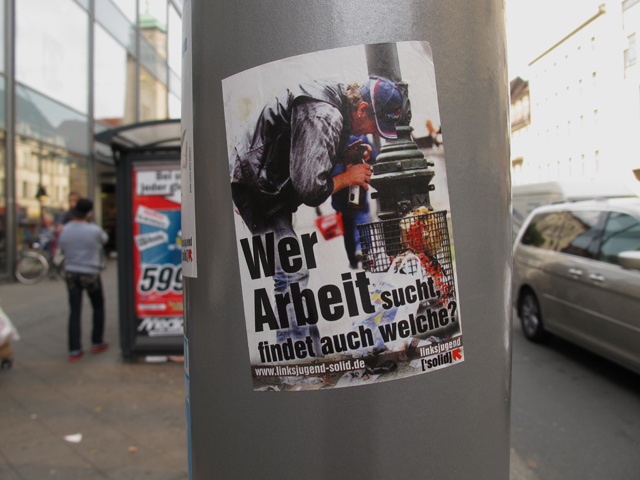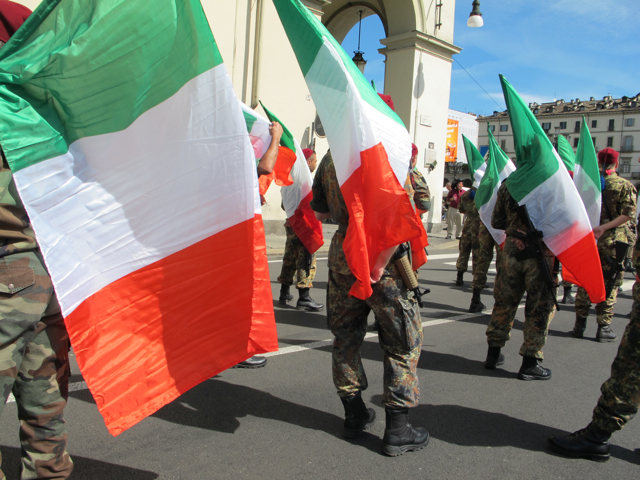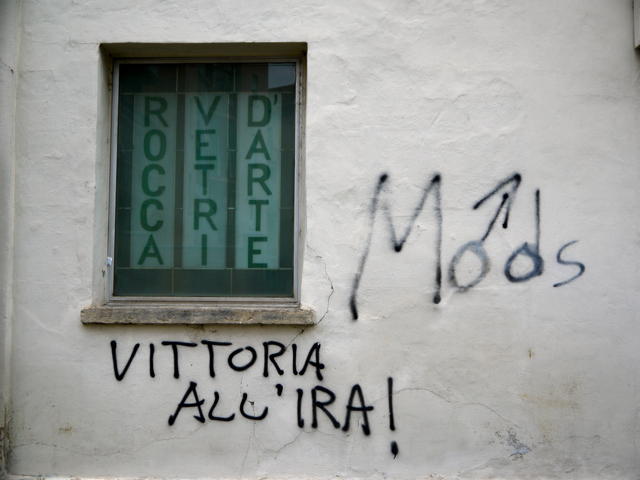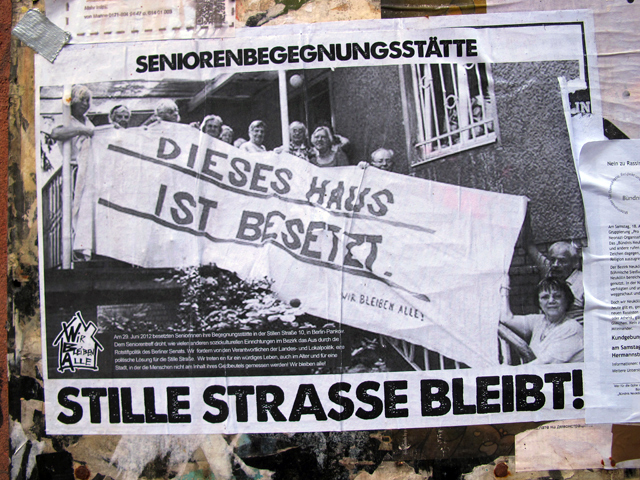What is the best way to handle a legacy of extremism? This is an important question for every democratic government, but particularly in those nations where radical ideology once held sway. And Germany remains on the top of list. No matter how stable the post-war Federal Republic’s political institutions, the Third Reich is never too far from people’s thoughts. (More…)
Author: RandomizerMost progressive periodicals emphasize words over images. Not Souciant. Randomizer is a column devoted to our love for political visuals. Collectively-authored by Souciant’s editorial staff, wherever they are. Including the kitchen.
Most progressive periodicals emphasize words over images. Not Souciant. Randomizer is a column devoted to our love for political visuals. Collectively-authored by Souciant’s editorial staff, wherever they are. Including the kitchen.
Piazza Vittorio was empty. With the exception of two elderly men, struggling to inflate what looked like an enormous stage prop. As I grew closer, its details came into focus. It was a fake boulder, with the word “Crisis” (Italian for “crisis,” shorthand for the economic crisis) written on it. (More…)
This sticker, the final installment in Souciant’s series on the German Left Party’s youth outreach campaign, complements the other anti-military message in the series. But, whereas that one builds on a pull-no-punches approach developed in the Weimar Republic, and reanimated by punk, today’s is strangely subdued. (More…)
Squatting is in the news again. This time, as a consequence of a new UK law criminalizing the practice. In effect since November, the legislation could not have been passed at a poorer (to put it bluntly,) time. With the British economy in its fourth year of crisis, there was something especially cruel about the gesture. If you’re homeless, that’s your lot. Shelter is out of the question. (More…)
This sticker, the latest in Souciant’s series on a youth outreach campaign of Germany’s Left Party, brings back memories of a time when I was both “learning to see,” in the sense Rainer Maria Rilke invokes in The Notebooks of Malte Laurids Brigge, and trying hard not to do so. (More…)
This sticker, the third in a series Souciant has been documenting, is a pre-emptive strike against its creator’s public image. Earnestness has long been a problem for the Left. Whether your idea of a “leftist” is a Volvo-driving vegan devoted to Democracy Now, or a labor organizer whose idea of fun is to explain, over too many drinks, why Leon Trotsky was a true hero (More…)
Blame the duration. Now in its eleventh year, the war in Afghanistan has assumed an aura of permanence. Like the Palestinian-Israeli conflict, it grinds on, without any endpoint in sight. American declarations about drawing down its troops look good in the newspaper. However, nobody takes them seriously anymore. (More…)
Burning rivers, blood-soaked seal fur, birds coated in oil and now beachside amusement parks standing forlornly in the surf: the environmental movement has long had a gift for distilling complex problems into memorable images. The traditional Left, by contrast, has struggled to find those proverbial pictures worth a thousand words to communicate its most crucial arguments. (More…)
This sticker, the first in a series from the German Left Party’s youth outreach campaign that Souciant will be featuring in the weeks to come, provides a biting critique of the career opportunities —The Clash’s song by that name is brought to mind — in Germany’s army, the Bundeswehr. Even as it mobilizes nostalgia for its more egalitarian past: (More…)
The Eurozone crisis needs a counterculture. Unable to claim a youth genre for its repertoire, at best, it has been represented by a resurgence of interest in punk. Whether it be mohawk hairstyles for women, studded leather boots from Milan, or Berlin goth-punk groups like Tanzkommando Untergang, a signature is indeed emerging. It’s reach, however, is limited. Surely, there is something with a wider appeal. (More…)
At first glance, the flyer might have struck the jaded flâneur as parody. Instead of the crusty punks and hippies that usually festoon images of protest in Berlin, a bunch of white-hairs hold a large banner with the classic squatter’s slogan “This house is occupied.” (More…)
One of the first things I did when I arrived in Germany as an exchange student in 1986 was to walk into a bookstore and buy a collection of Bertolt Brecht’s plays. I spoke almost no German. And the only Brecht I had been aware of back in the states was his libretto for the Kurt Weill “song-play” The Rise and Fall of the City of Mahagonny (More…)

